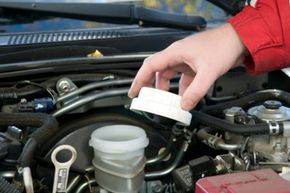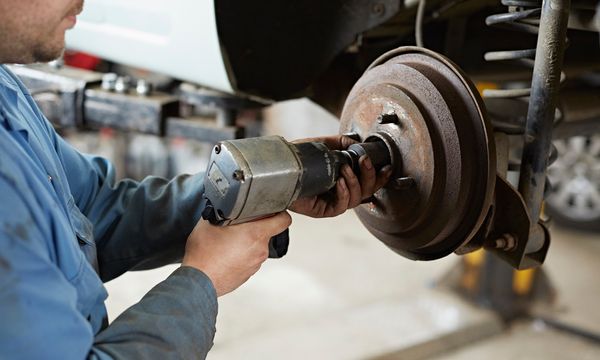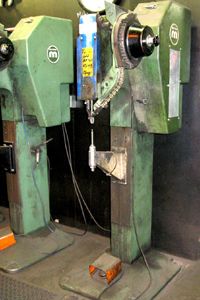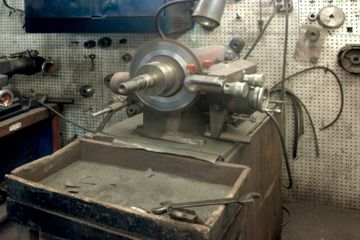Brakes are arguably your car's most vital system: Other breakdowns might be a hassle, but brake failure could spell outright catastrophe. Such mishaps are preventable, however, if you check your brakes regularly.
Fortunately, the most essential tools for testing your brakes already come standard on most people: eyes, hands and feet. Before breaking out any fancier gadgets, use your peepers and mitts to verify the brake fluid level in the reservoir; inspect the condition of your brake pads; search for bubbles in the hydraulic line; check for leaks, wear and rust; ensure proper lubrication and function throughout; and see if the brake indicator light is on.
Advertisement
Your feet and your sense of feel can diagnose several potential problems based simply on pedal and brake response, including hints of a worn-out master cylinder or vacuum booster [source: Magliozzi and Berman]. A soft brake pedal could signify that it's time to bleed your brakes, and slow stop times or brake lockups imply a faulty proportioning valve [source: Carley]. We'll tell you what tools you'll need to bleed your brakes and check your brake-proportioning valve below.
First, however, let's look at how to test your brake fluid. Remember, unless it contains rust or appears muddy brown, you cannot visually detect when brake fluid needs replacing, so use one of these instead:
- Optical refractometer: Measures the refraction of light through a fluid sample to determine moisture content and boiling point
- Chemical test-strips: Change color to indicate copper buildup, a signal that the fluid's anticorrosion additives are nearly kaput
- Electronic testers: Estimate brake fluid's boiling point, either by measuring its conductivity or, ideally, by boiling a sample
When it comes to bleeding brake fluid, pumps and vacuums are your best friends, and are quicker and easier than gravity or brake pumping. Hook a pressure tank to the master cylinder reservoir to push the old fluid out, or attach a vacuum bleeding tool to the bleeder screws to pull it out.
Gauges are invaluable for checking your braking system's hydraulic and pressure conditions. To test a suspect proportioning valve, simply install a hydraulic gauge on either side of it. You can verify engine vacuum (used by the power brake booster) by connecting a vacuum gauge to the supply hose running from the intake manifold.
As for the brakes themselves, you'll need a micrometer or vernier calipers to measure brake pad and rotor thicknesses, as well as the rotor runout (wobble), flatness and parallelism.
Understanding problems with electrical mechanisms or switches, such as components of the Antilock Braking System (ABS), will require a computerized scan tool or diagnostics tool and the applicable shop manual [source: Senter].
Now it's time to bring this to a slow, smooth stop. Good luck, and remember: Take care of your brakes and they'll take care of you.
Advertisement



